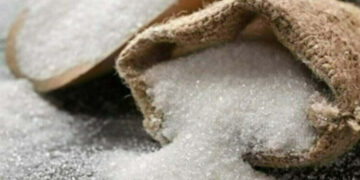(May 29-2023) Brig. (retd) Aslam Khan, Chairman of Pakistan Economy Watch (PEW) said on Monday that the production of wheat in the country is not able to keep pace with the growing population.
Due to reduced production and a growing population, the wheat exporting country is now forced to import wheat worth billions of dollars.
In a statement issued here today, Aslam Khan said that the country’s population is increasing at a rate of two percent per year, but the production of wheat is not increasing at the same rate.
This year, the production of wheat is likely to be less than the target by 1.6 million tonnes, due to which wheat will have to be imported.


He said that wheat production was estimated at 28.4 million tonnes, but the recent estimates suggest that the production will remain at 26.8 million tonnes while the shortfall will be met through imports.
He informed that the area under wheat cultivation also declined from 9.3 million hectares to 9.1 million hectares as farmers shifted to other crops.
Wheat is the main staple food and its consumption is around 125 kilograms per head per year, which is one of the highest in the world. Wheat and wheat-based products account for 60-7 percent of total calories consumed, and it will remain of primary importance and the main source of calories.
He said that the per acre production of wheat is lower than in the neighbouring countries due to post-harvest losses, improper storage management, a lack of water, investment and research, substandard seeds, expensive fertilisers, primitive methods, a lack of loans, and fake pesticides.
Aslam Khan noted that during the harvest, wheat worth about two hundred billion rupees is lost, due to which the import bill increases up to one and a half billion dollars.
After harvesting, 10 to 15 percent of the wheat is lost, which is worth up to 1.3 billion dollars. If these losses can be controlled, Pakistan can again become a wheat exporting country.













